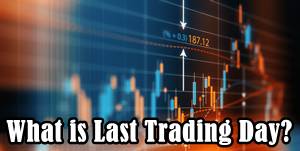
Table of Contents
Day Order
What is Day Order?
Day order definition can be referred to as the stipulation that has been placed in some order to the broker for executing a trade at a particular price expiring at the end of the given trading day in case it is not completed.

A day order can be referred to as a limit order for buying or selling a security. However, its overall duration is known to be limited to trading day’s remainder.
An Insight into Day Orders
A day order can be defined as one of the several duration types of different orders for determining how long the particular is in the Market before getting cancelled. In a typical case of day order, the given duration tends to be a single trading session. Therefore, it can be said that if the order of the particular trade does not get triggered or executed on the day the same was placed, it would lead to the cancellation of the order.
Some of the common instances of other types of duration-based orders could be GTC (Good’til Cancelled) ordered –remaining active until the same gets cancelled manually, and the IOC (Immediate or Cancel) order –filling all or some part of the order instantly and cancelling the order’s remaining part of the same is not fulfilled.
Day order is known to serve as the Default order duration on the respective Trading platforms. This is the reason why it is expected out of the traders to specify a particular time frame for the order’s expiration. Otherwise, it would automatically turn into a day order. As such, day traders are known to make use of several types of orders during the placement of trades. As it turns out to be default, most orders, therefore, turn out to be day orders.
How to Use Day Orders?
Day orders can specifically be useful when the same is utilized for ordering a security at some particular price point such that the trader is not required to monitor the overall security for the entire day awaiting the right time for executing the given order. This is known to help the Intraday traders to monitor as well as trade multiple securities at a time. This turns out to be a common practice.
Talk to our investment specialist
Before the opening of the market, traders are known to analyse individual securities that they are trading. Then, they would place orders as per the respective strategies. The traders are also known to take specific actions over the entire trading day course as the execution of the individual orders takes place.
Intraday traders are often used to make use of the given strategies for dictating the exiting positions before the closing of the market. Therefore, if a particular order does not get filled by the end of the day, the trader might cancel the same. As this tends to happen automatically for the subsequent day orders, these are favored by the Intraday traders.
All efforts have been made to ensure the information provided here is accurate. However, no guarantees are made regarding correctness of data. Please verify with scheme information document before making any investment.












